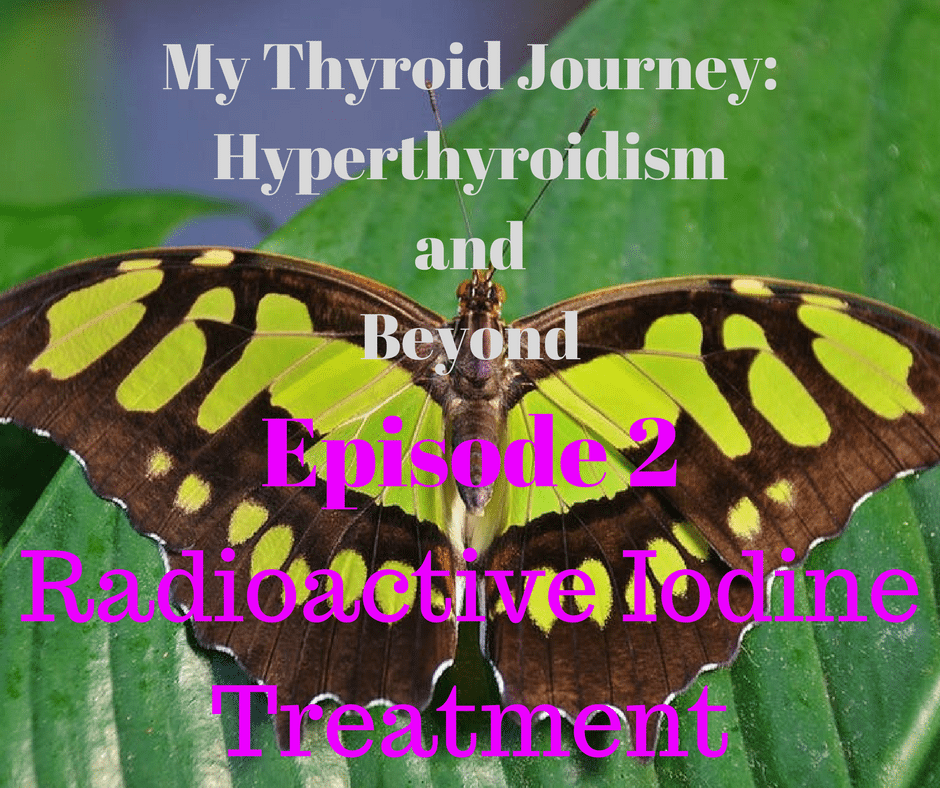Radioactive Iodine for Hyperthyroidism

We may earn money or products from the companies mentioned in this post.
So what’s this radioactive iodine treatment I had? Radioactive iodine treats hyperthyroidism by gradually shrinking your thyroid—ultimately destroying the gland. Yep, that’s pretty much what went on for me. I took a little pill that ultimately destroyed my thyroid and all of it’s function. Remember though, the medication I WAS on was not showing any signs of improvement. For me and most individuals, radioactive iodine treatment tends to have a much higher success rate than medications. That was pretty much the case for me.
People with Graves’ disease, nodular goiter, or thyroid cancer are treated with radioactive iodine for the purpose of destroying their thyroid gland. Remember, I had a goiter along with my hyperactive thyroid.
The radioactive iodine often kills an excessive amount of thyroid cells, leaving the thyroid unable to produce enough hormones—the opposite problem you had before.
It might seem odd to replace one disorder with another, but hypothyroidism is much easier to treat on a long-term basis than hyperthyroidism. SO basically I will need to take life-long thyroid hormone replacement medication , but it is a safe, reliable, and cost-effective treatment.
So when we fast forward a few months, I end up with HYPOTHYROIDISM, which is also known as underactive thyroid. So I went from one extreme to the next. Hypothyroidism means that the thyroid gland can’t make enough thyroid hormone to keep the body running normally.
What are signs and symptoms of hypothyroidism?
The signs and symptoms of hypothyroidism vary, depending on the severity of the hormone deficiency. But in general, any problems you have tend to develop slowly, often over a number of years.
- Fatigue (CHECK)
- Increased sensitivity to cold (CHECK)
- Constipation ( CHECK)
- Dry skin (CHECK)
- Weight gain (CHECK)
- Puffy face
- Hoarseness
- Muscle weakness
- Elevated blood cholesterol level
- Muscle aches, tenderness and stiffness
- Pain, stiffness or swelling in your joints
- Heavier than normal or irregular menstrual periods
- Thinning hair (CHECK)
- Slowed heart rate
- Depression (CHECK)
- Impaired memory
Latest posts by Melanie Sobocinski (see all)
- Why Your Metabolism and Hormones May be a Little Slow - November 5, 2020
- My Before and After Story - September 11, 2020
- 7 Changes That Happen When You Don’t Eat Enough - July 16, 2020



